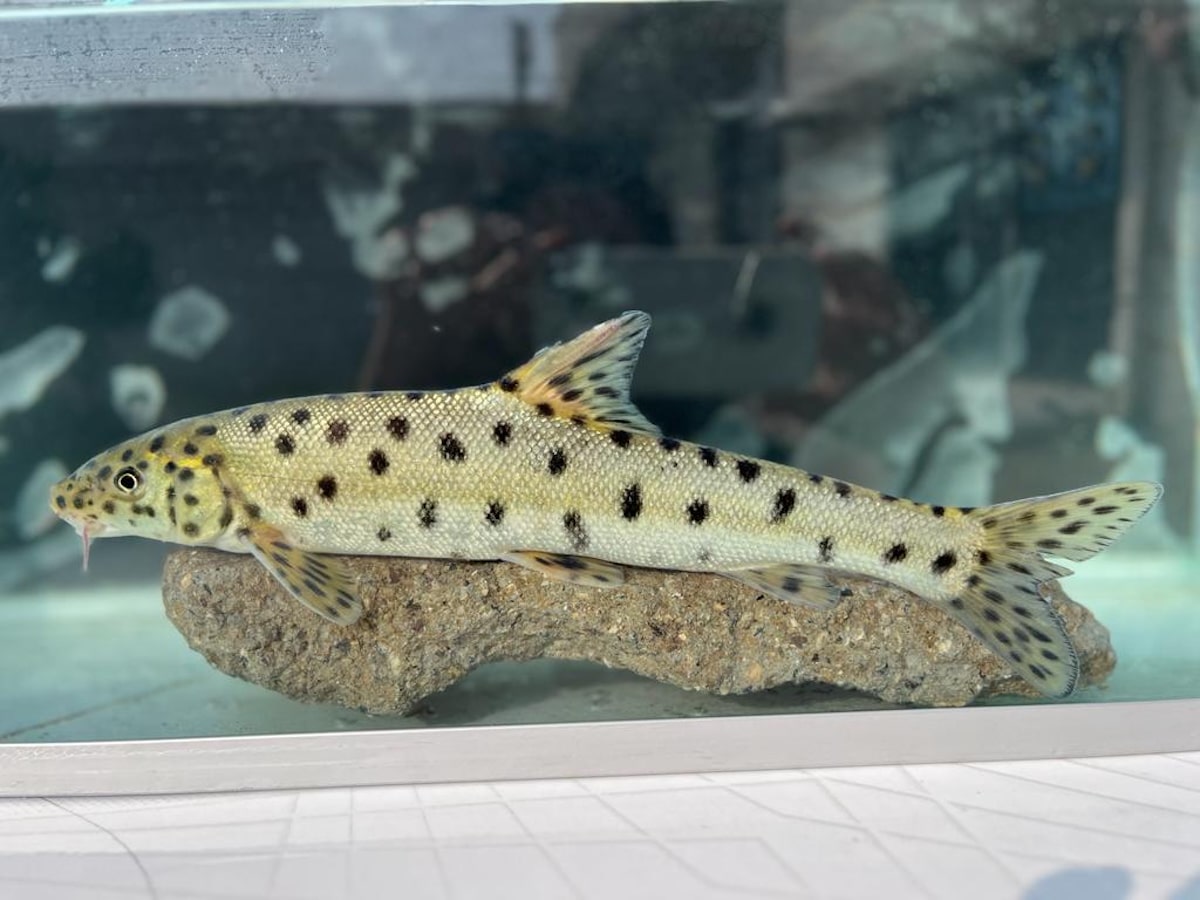Scientists Spot Rare Leopard Barbel Fish in the Wild, Giving Hope for Freshwater Species

 Why you can trust us
Why you can trust us
Founded in 2005 as an Ohio-based environmental newspaper, EcoWatch is a digital platform dedicated to publishing quality, science-based content on environmental issues, causes, and solutions.
Despite a recent report from the International Union for Conservation of Nature (IUCN) that highlighted that 25% of freshwater fish were threatened with extinction, scientists in Turkey have recently come across a rare species sighting that gives some hope to the situation.
Ichthyologists in Turkey recently spotted the leopard barbel (Luciobarbus subquincunciatus), a rare freshwater fish that hasn’t been scientifically documented since 2011.
They observed the fish in the Tigris River, making this the second freshwater fish species on the Search for Lost Fishes program’s list. Search for Lost Fishes is a collaboration between conservation group Re:wild, global freshwater species conservation initiative SHOAL and UK-based charity Synchronicity Earth.
The scientists were tipped off by local fishers, who have suggested the fish could have still been around despite going scientifically undocumented for over a decade. With these insights from the local community, a team consisting of the local fishers, the local fisheries aquaculture department, Cüneyt Kaya, associate professor at Recep Tayyip Erdogan University, and Münevver Oral, assistant professor at Recep Tayyip Erdogan University, set out to find this rare species.
“There is nothing quite like the feeling of finding that a species that has been pushed to the brink of extinction is still hanging on, despite the odds,” Kaya said in a press release. “It is even more thrilling than discovering a new species because it means that we can give a rare species a second chance. With both the Batman River loach and now the leopard barbel, we have an obligation to mobilize conservation efforts to ensure neither becomes lost again.”
Amid a second expedition, local fisher Mehmet Ülkü found a fish with prominent spotted markings in Cizre and suspected this could be the leopard barbel the team was searching for. Ülkü kept the fish safe in a tank with a constant oxygen supply as Kaya and Oral made their way to Cizre. In the meantime, Ülkü found and safely captured a second suspected leopard barbel.
After the team confirmed the species findings, the fish were safely released back into the wild with the help of the fisheries aquaculture department.
“We dropped everything and would have gone to the ends of the Earth to see this fish, this legend, alive in the wild,” Oral said. “I have never seen a fish as beautiful as this. It was the realization not only of our dream to find this lost species, but of the hope that not all is lost — we still have a chance to protect the leopard barbel and all of the other incredible freshwater species it shares its home with.”
Formerly, this freshwater fish species was found widely across the Tigris-Euphrates river system in eastern Turkey, eastern Syria, Iran and Iraq. But according to Re:wild, leopard barbels have faced many threats over the past 30 years that have pushed them toward extinction. Some of the top threats to the species include fishing, pollution and habitat destruction. Today, IUCN Red List lists the species as critically endangered.
But the rediscovery of the species in Turkey gives hope not only for the leopard barbel but other vulnerable freshwater fish species as well. With new and continued efforts, the expedition teams hope to improve protections. These efforts come at a crucial time, as a new dam is under construction in Cizre and could further threaten the leopard barbel species, Re:wild reported.
“We all have a role to play in protecting our incredible natural heritage and I am proud to have used my skills to help rediscover the leopard barbel,” Ülkü said. “Safeguarding this species into the future is going to require educating other fishers and continuing to bring together scientific knowledge and local expertise.”
According to Re:wild, Kaya and Oral plan to host seminars for fishers and educators on the biodiversity of the Tigris River to educate and build pride in local wildlife. They will also continue research on the leopard barbel to estimate how many might still exist and the extent of their remaining range.
Subscribe to get exclusive updates in our daily newsletter!
By signing up, you agree to the Terms of Use and Privacy Policy & to receive electronic communications from EcoWatch Media Group, which may include marketing promotions, advertisements and sponsored content.

 233k
233k  41k
41k  Subscribe
Subscribe 




